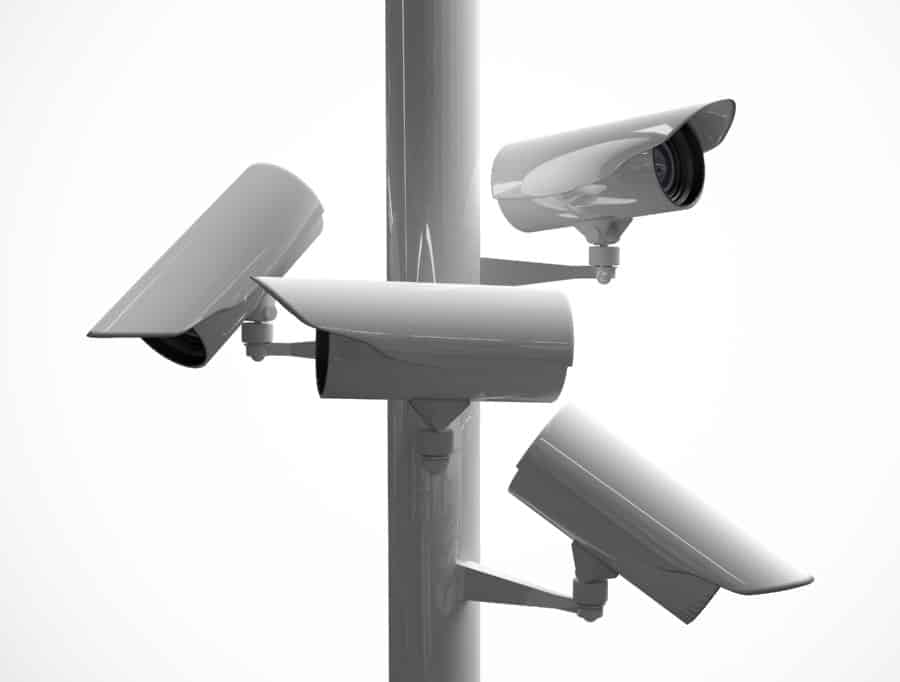
Surveillance cameras. Image from DepositPhotos/Wavebreakmedia
Not too long ago, the Beetham highway was the scene of protest. I listened to some people in a local coffee shop, young technical people, discussing how technology could be used to deal with the situation – cameras, really, was what they came up with. It was a pretty long conversation simply to come up with cameras.
Cameras aren’t the solution. Technology, used wisely, could have actually avoided the situation – and many other situations around the country and around the world – but it is not an end in itself. We don’t just throw up some cameras and make it someone else’s problem because that sort of thinking is exactly the problem.
Let’s really look at the problem.
The problem is that the community doesn’t think it’s getting what it should, and the odds are good that if you walk outside and speak with a neighbour, you’ll hear much the same thing where you are – it’s a matter of degree.
The problem is really that people don’t feel engaged, don’t feel like they matter. They go to those that make them feel so – sometimes a national security issue than anything – and despite Police outreach programs, this continues not because of anything but making simple things difficult.
Simple things that technology, properly used, could streamline. A simple thing like seeing an elected official, a Member of Parliament, is not easy even when they have a Facebook page. Where people not having trash collected because people aren’t being paid causes people to dump rubbish on the land of others. Where a quick dollar doing the wrong thing is more easily had than getting work.
Where people complain about stray dogs being poisoned at a PriceSmart in La Romain causes the wringing of hands but, when asked what should be done about the stray animals, no one has an answer other than the cliche ad hominem attack. Slow unreactive bureaucracy dehumanizes people, blue forms circumvent them. Corruption.
All of these things can be addressed through technology – all of them – but it takes more than technology. It takes the will – perhaps the political will – to make this issue come to the fore. Technology is a tool, and it can be a tool of solving problems rather than reacting to what problems have caused.
We have these tools, and we most certainly have the people to implement. We most certainly have people within our communities who have insight into issues, who are willing to help, who want their community to be a place where their children can grow up in safety and security.
Ultimately, until governance allows for voices to be heard beyond political handshakes before the election, we will see more of the same. People should be heard, they need to be heard, and further, their needs should be met. There are moves being made, but these moves need to be faster and more thoughtful.
We need to come up with better solutions than cameras.
Taran Rampersad has over three decades of experience working with technology, the majority of which was as a software engineer.
He is a published author on virtual worlds and was part of the team of writers at WorldChanging.com that won the Utne Award.
He is an outspoken advocate of simplifying processes and bending technology’s use to society’s needs.
His volunteer work related to technology and disasters has been mentioned by the media (BBC), and is one of the plank-owners of combining culture with ICT in the Caribbean (ICT) through CARDICIS and has volunteered time towards those ends.
As an amateur photographer, he has been published in educational books, magazines, websites and NASA’s ‘Sensing The Planet’.
These days, he’s focusing more on his writing and technology experiments. Feel free to contact him through Facebook Messenger.


